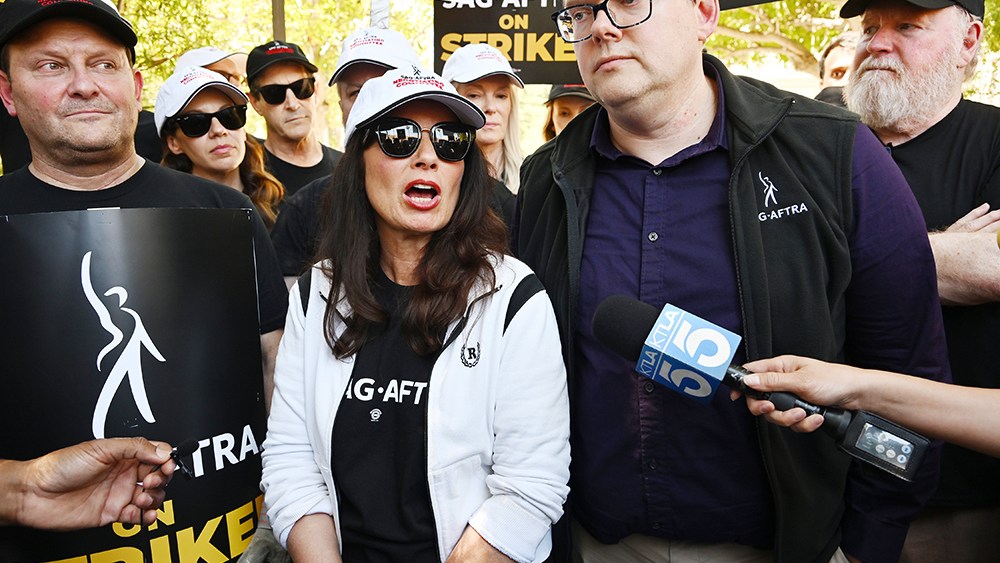The entertainment industry has united in support of a bill to outlaw digital deepfakes and create the first-ever federal right to one’s voice and likeness.
A bipartisan group of senators, led by Sen. Chris Coons of Delaware, introduced a revised version Wednesday of the No Fakes Act, which would make it illegal to create an AI replica of someone without their consent.
The bill has the support of SAG-AFTRA, Disney, the Motion Picture Association — which represents six major studios — as well as the Recording Industry Association of America, the Recording Academy, and the major music labels and talent agencies.
“Game over A.I. fraudsters!” said Fran Drescher, the president of SAG-AFTRA, in a statement. “Enshrining protections against unauthorized digital replicas as a federal intellectual property right will keep us all protected in this brave new world. Especially for performers whose livelihoods depend on their likeness and brand, this step forward is a huge win!”
SAG-AFTRA has long pushed for a federal likeness right, which exists now only in state laws. The advance of artificial intelligence — and high-profile controversies involving Taylor Swift, Joe Biden, Scarlett Johansson, and most recently, Kamala Harris — have spurred renewed interest in both state and federal legislation.
Coons initially introduced a “discussion draft” of the No Fakes bill last fall, with support from SAG-AFTRA and other artist groups. But the MPA warned that, as written, the draft would interfere with speech protected by the First Amendment, such as the digital recreations of historical figures seen in “Forrest Gump” and “For All Mankind.”
The MPA said Wednesday that it supports the revised version, which includes allowances for docudramas, commentary, and other protected speech.
“We particularly appreciate the sponsors’ inclusion of safeguards intended to prevent the chilling of constitutionally protected speech such as biopics, docudramas, parody and satire – which will be necessary for any new law to be durable,” the association said.
Even some in the tech industry have accepted the idea of outlawing unauthorized likenesses, which they see as an abuse that gives AI a bad name. OpenAI and IBM each endorsed the revised legislation.
“Creators and artists should be protected from improper impersonation, and thoughtful legislation at the federal level can make a difference,” said Anna Makanju, vice president of global affairs at OpenAI, in a statement.
The revised version of the bill would preempt future state laws on the subject, while leaving existing state laws intact. It also adopts two key priorities of the tech sector: a safe harbor provision for AI software developers and a notice-and-takedown mechanism for online platforms. Similar to the current online copyright regime, the takedown system would immunize platforms from liability if they promptly remove unauthorized replicas.
Though celebrities and public figures have the greatest stake in the subject, the law would apply to deepfakes of everyone — famous and non-famous alike. Coons has said he hopes to get the bill out of committee and passed into law this year.
